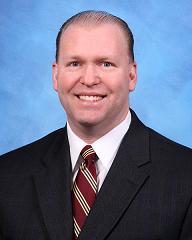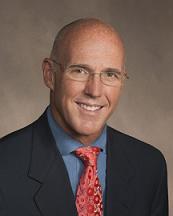Three spine surgeons set the record straight on common misconceptions surrounding outpatient spine surgery and explain exactly how spine procedures are being performed in an ambulatory surgery center setting.
 1. ASCs don't have the technology needed for spine surgery. Ambulatory surgery centers are undeniably smaller than hospitals and this can lead to the impression that the ASC operating room is not equipped to handle spine surgery. In reality this is not the case. "For a routine surgery, everything is available in the surgery center," says Neel Anand, MD, clinical professor of surgery and director of spine trauma at Cedars-Sinai Spine Center in Los Angeles. "ASCs that offer spine surgery are prepared with everything a surgeon will need for procedures that will be performed there, just as a hospital would."
1. ASCs don't have the technology needed for spine surgery. Ambulatory surgery centers are undeniably smaller than hospitals and this can lead to the impression that the ASC operating room is not equipped to handle spine surgery. In reality this is not the case. "For a routine surgery, everything is available in the surgery center," says Neel Anand, MD, clinical professor of surgery and director of spine trauma at Cedars-Sinai Spine Center in Los Angeles. "ASCs that offer spine surgery are prepared with everything a surgeon will need for procedures that will be performed there, just as a hospital would."
"You can persuade ASC leaders to get new equipment. It's the same in a hospital. If the reward is worth the risk, you can absolutely get access to new equipment," says Scott Spann, MD, board-certified orthopedic spine surgeon and founder of Pantheon Spinal in Austin, Texas.
While surgery centers often do not have access to the funds that hospitals do, they are free of the many layers of bureaucracy surgeons often feel weighed down by at hospitals. Spine surgeons can easily reach ASC leaders to discuss the possibility of new equipment being brought to the center. If the purchase of new equipment is feasible and beneficial, it is likely that a surgery center would be able to process a surgeon's request at quicker rate than a hospital.

2. Spine surgery is too complicated to be performed outside of a hospital. Traditionally, spine surgery has been a major procedure that causes a significant amount of trauma and requires a considerable period of recovery. "The old notion is that spine surgery is debilitating. Surgeons and patients are scared because of this," says Jeffrey Carlson, MD, orthopedic spine surgeon, president and managing partner of Orthopaedic and Spine Center in Newport News, Va.
Despite the intimidating nature of spine surgery, the times are changing." The more we move towards minimally invasive techniques, the less invasive the overall surgery becomes and the more rapidly people mobilize," says Dr. Spann. The advent, and rapidly increasing trend, of minimally invasive surgery has allowed spine surgeons to diminish the amount of trauma patients' experience and enhance their recovery time.
Several procedures have already proven simple enough to routinely perform in the outpatient setting. "Procedures such as single level ACDF and foraminotomy are minor procedures that only take one to two hours, are minimally invasive and have a quick recovery time," says Dr. Anand.

3. Patients need an overnight stay to recover. Due to the complex nature of spine surgery, unsurprisingly the common thought is that patients need to remain in a hospital for, at the very least, overnight observation. Yet, in many cases inpatient spine surgery patients are showing this to be unnecessary. "You come to the reality of watching your patients who are, for instance, recovering from an ACDF. They are chomping at the bit to get back to their own bed that night. We see the same thing with lumbar laminectomy," says Dr. Spann.
As surgical and anesthesia techniques improve, the more procedures that were conventionally relegated to the inpatient setting are now moving to the ASC. "We are even starting to do lumbar fusion surgeries outpatient. Patients can go home within a couple of hours, rather than staying in the hospital," says Dr. Carlson.
The most important thing to understand about spine surgery in the outpatient setting is its limitations. Not all procedures or patients are candidates for spine surgery in the ASC. "You need a relatively healthy patient with no comorbidities, such as blood pressure or heart problems. It is all about planning. If you know your patient and are technically capable, then it is certainly possible," says Dr. Anand.
If a patient is healthy and the spine surgeon is comfortable performing the surgery at an ASC, the only thing left to consider is the possibility of complications. "The key feature is not the OR. You will do the same thing in an ASC OR as a hospital OR. The key is having the capability to respond to any complications that occur," says Dr. Spann. "ASCs should have a transfer agreement with a hospital." A transfer agreement is in place to be sure there is a way to deal with unexpected complications beyond the capabilities of a surgery center, but this is the worst case scenario. Any patients known to be at risk for complications, and therefore in need to close and extended observation, are immediately ruled out as outpatient candidates.
For patients that are suited for outpatient surgery, the benefits go beyond being able to return to their own beds sooner than if they were to be treated in a hospital. "Patients don't need to be in a major hospital where there are more sick patients," says Dr. Anand. Outpatient surgery centers tend to treat healthier people and lower the risk of infection.
4. Spine surgery has always been done inpatient and that is where it should stay. Patients have general misconceptions about how painful spine surgery and what their dysfunction will be afterwards. Surgeons cling to inpatient spine surgery because they have the attitude of "this is how I was taught," but there needs to be a change in that thought process, said Dr. Carlson. "It doesn't make a lot sense to keep patients if they can get up and go."
Outpatient spine surgery offers patients not only the advantage of returning home at a quicker rate, but it also provides a financial benefit. "Most ASC procedures are carried out on a lower price range than in a hospital setting. ASCs are generally paid at a flat rate, while hospitals typically charge by a line item billing process," says Dr. Spann. "But at the end of the day, as long as your patient gets an optimal outcome, which is all that really matters."
As minimally invasive techniques progress and spine surgeons master new skills, overnight stays will become less necessary. "There are lots of minimally invasive techniques that have made spine surgery acceptable in the ASC. Time of surgery and blood loss have to be considered, but once all of these fall into place, more and more will move to the outpatient setting," says Dr. Anand.
More Articles on Spine:
10 Best Professional & Clinical Best Practices for Spine Surgeons to Build Their Practices
4 Key Metrics for Spine Surgeons to Track
US Minimally Invasive Spine Device Market to Top $3B by 2019


